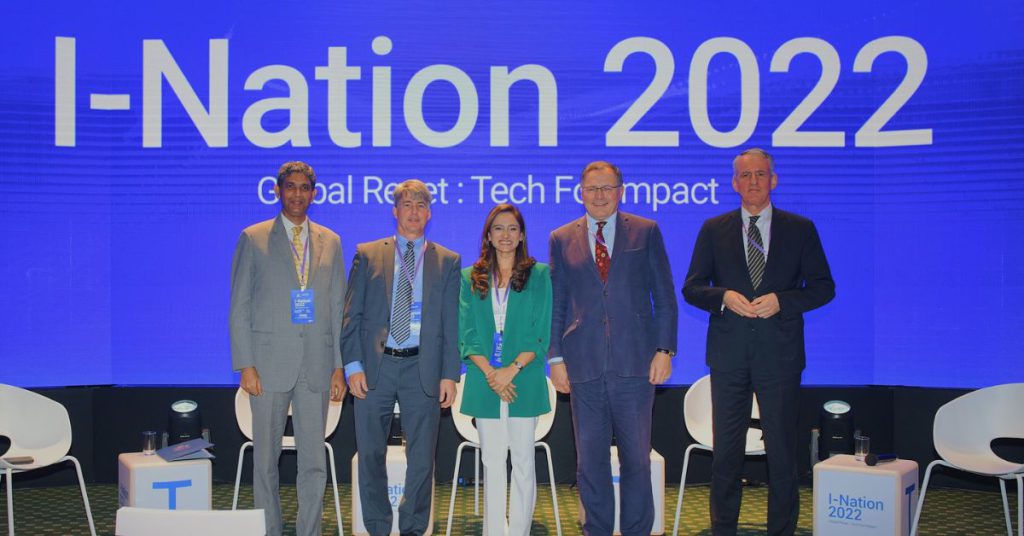[This is a sponsored article with MRANTI.]
As of 2020, KL ranked as the 11th emerging startup ecosystem, according to the Global Startup Ecosystem Report 2020, and is a regional leader within SEA.
To no one’s surprise, ecommerce makes up one of the top-ranking industries at present, due to the pandemic. But what other industries should stakeholders be keeping their eyes on?
This was a question answered at I-Nation, the flagship event hosted by the Malaysian Research Accelerator for Technology & Innovation (MRANTI), which took place over November 29-30, 2022.
The conference spotlighted four high-growth industries that could boost Malaysia’s tech scene and economy in the next few years.
1. Food security
The current world population of 7.6 billion is expected to reach 8.6 billion in 2030, and 9.8 billion in 2050, according to the United Nations.
How do we ensure that food systems can accommodate this?
Having consumers grow their own food is one way to lighten the load, stated Romil Samsudin, co-founder of the social impact platform, Zer0Hunger. Malaysian startups are already providing solutions in this area, such as this Penang startup offering self-sufficient vertical farming systems to grow greens.
This is just one example of how technology can be leveraged to achieve global food security.

Thus far, the outlook on Malaysia’s agritech scene is also encouraging.
Farmers are actively applying smart technology to their operations, such as these ex-accountants growing Japanese musk melons in their Putrajaya IoT farm, and a durian farmer’s son implementing 5G to detect freshly fallen durians.
Sime Darby’s Plantation R&D Centre’s Samsudin Amit also shared that it is looking into how palm oil can be used to make vegetarian chicken. This can contribute to long-term food security when looking at meat alternatives.
2. Healthcare
The world’s ageing population and an increase in chronic conditions pose the need for more healthtech solutions to alleviate the burden on public healthcare systems.
Health equity is all about making healthcare more accessible and affordable for everyone. Telemedicine can provide the public with better access and reach, particularly to underserved individuals.
Telehealth provider, DoctorOnCall is one Malaysian player in this field that already has 2.8 million monthly users, claimed its CEO, Maran Virumandi at an I-Nation talk. The startup has also set up mobile clinics in the form of “pods” to access the needy and rural communities.

At Vulcan Post, we’ve even seen a Malaysian e-pharmacy roll out a subscription plan to make topping up prescription medicines easier.
I-Nation’s panellists have noted that one untapped solution in the healthtech sector is a solution for public and private healthcare facilities to store patient records on a secure blockchain.
This way, patients seeking care and treatment from different providers can easily access their own data, without needing to port around bulky, physical paperwork.
3. Climate change
Malaysia’s devastating floods in 2021 resulted in overall losses of RM6.1 billion. The outcome of this natural disaster posed the questions: “Is Malaysia equipped to handle the effects of climate change? What are we doing to manage, or lower it?”

One solution is to diversify Malaysia’s food sources, such as reducing the reliance on livestock. This was according to Dr. Gary Theseira, Technical Expert at the country’s climate change mitigation agency, the Malaysian Green Technology and Climate Change Corporation (MGTC).
Another option could be implementing a carbon tax that companies have to pay if they emit a certain value of greenhouse emissions.
Singapore has already done so, and the country plans to use the funds to find ways to offset the emissions generated.
Bursa Malaysia will also launch an exchange for companies to invest in climate-friendly projects and solutions. This is meant to promote low-carbon business models and encourage more to do the same.
4. Workforce automation
As the pandemic has forced businesses and individuals to pick up digital solutions to stay connected, companies are embracing workforce automation.
So that employees don’t get left behind, it’s important to ensure that the workforce is upskilled in automation and digitalisation.

5G networks will reportedly provide 50x more speed, 10x less latency, and 1,000x more capacity than 4G and LTE. Hence, more devices can be connected for enhanced user experiences, and supply chain productivity can see an upward trend.
If workforce automation is pulled off right, we could see increased efficiencies in robotics, 3D printing, machine learning, AI, and cloud computing. This was highlighted by Deep Prakash, Head of Enterprise Business at Sweden-based 5G developer, Ericsson.
While 5G continues to be rolled out across the country, 5G connectivity is already offered at MRANTI Park to businesses that are leveraging its facilities.
For improving Malaysia’s economic inclusivity
Ultimately, all the industries highlighted above play a role in increasing Malaysia’s economic inclusivity, and managing the country’s cost of living.
With tech-driven agencies like MRANTI helping to implement and commercialise the innovations mentioned above, this could lead to the betterment of the economy, as well as environmental and business sustainability.
Featured Image Credit: I-Nation 2022











